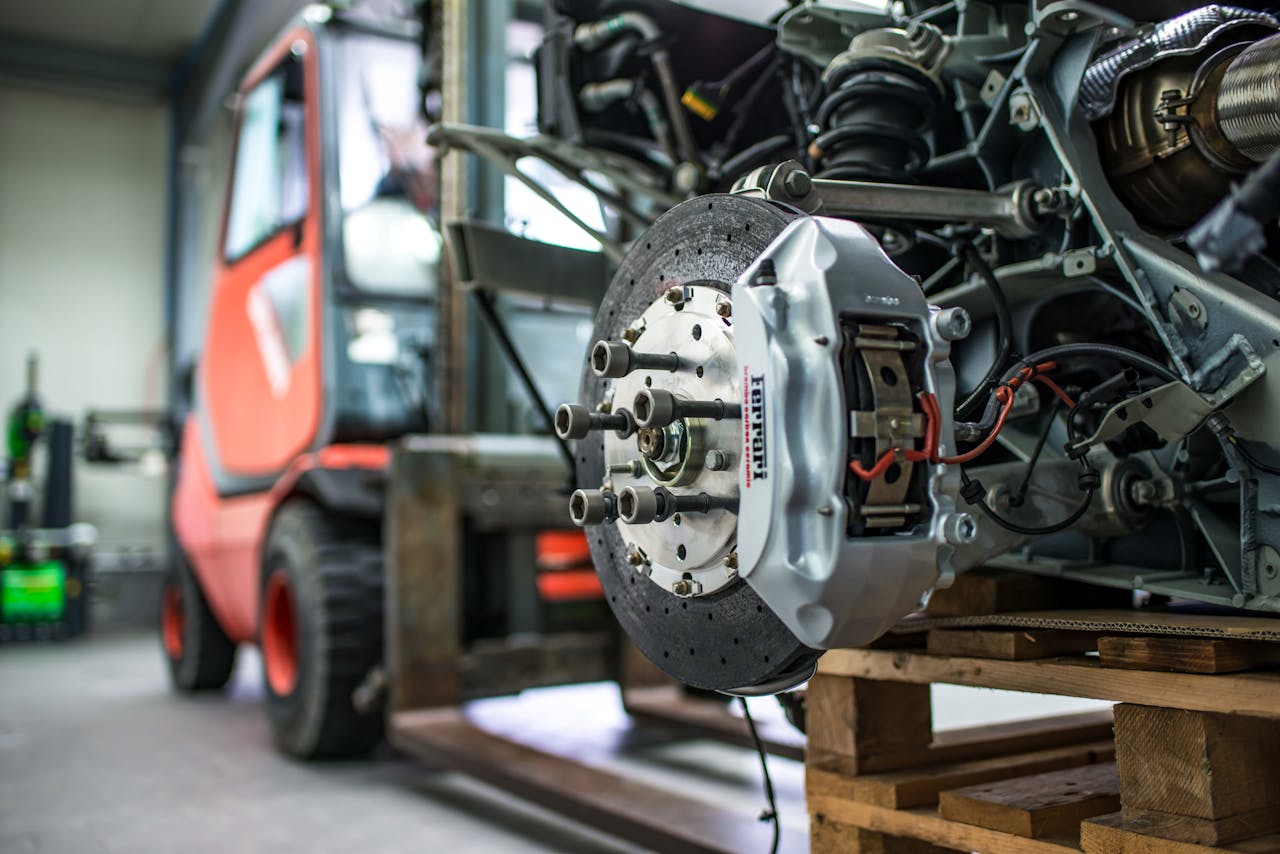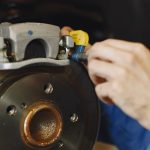In the intricate ballet of automotive safety, the brake system takes center stage, offering the crucial ability to slow down and stop a vehicle. However, like any intricate mechanism, brake systems are susceptible to various issues that can compromise their effectiveness. In this comprehensive guide, we will explore common brake system failures, understand their potential causes, and discuss effective fixes to keep you safe on the road.
1. Spongy or Soft Brake Pedal
Understanding the Issue: A spongy or soft brake pedal is a common complaint among drivers, indicating a lack of firmness or responsiveness when applying the brakes. This issue can compromise the vehicle’s stopping power.
Potential Causes:
- Air in the brake lines
- Brake fluid leaks
- Worn brake pads or shoes
- Malfunctioning brake master cylinder
Fixes:
- Bleed the brake system to remove air.
- Inspect and repair any brake fluid leaks.
- Replace worn brake pads or shoes.
- Address issues with the brake master cylinder.
2. Brake Noise (Squeaking or Grinding)
Understanding the Issue: Unusual noises, such as squeaking or grinding, when applying the brakes can be alarming. These sounds may indicate worn brake components that need attention.
Potential Causes:
- Worn brake pads or shoes
- Brake rotor or drum damage
- Lack of brake lubrication
- Foreign objects caught in the brake assembly
Fixes:
- Replace worn brake pads or shoes.
- Resurface or replace damaged brake rotors or drums.
- Lubricate brake components to reduce friction.
- Remove any foreign objects from the brake assembly.
3. Brake Fluid Leaks
Understanding the Issue: Brake fluid leaks can compromise the hydraulic system’s integrity, leading to reduced braking performance. Identifying and repairing leaks is crucial for maintaining a reliable brake system.
Potential Causes:
- Damaged brake lines or hoses
- Faulty brake calipers or wheel cylinders
- Worn brake seals or gaskets
Fixes:
- Replace damaged brake lines or hoses.
- Inspect and repair or replace faulty brake calipers or wheel cylinders.
- Address issues with worn brake seals or gaskets.

4. Brake Warning Light
Understanding the Issue: The brake warning light on the dashboard signals potential problems with the brake system. Ignoring this warning can lead to severe issues, so prompt attention is essential.
Potential Causes:
- Low brake fluid
- Worn brake pads
- Brake fluid contamination
- Malfunctioning brake sensors
Fixes:
- Check and top up brake fluid to the recommended levels.
- Inspect and replace worn brake pads.
- Address brake fluid contamination issues.
- Diagnose and replace malfunctioning brake sensors.
5. Reduced Stopping Power
Understanding the Issue: A noticeable decrease in stopping power can be a critical concern. This issue may result from various factors affecting the overall efficiency of the brake system.
Potential Causes:
- Worn brake pads or shoes
- Brake fluid contamination
- Rotor or drum damage
- Malfunctioning brake boosters
Fixes:
- Replace worn brake pads or shoes.
- Address brake fluid contamination issues.
- Resurface or replace damaged brake rotors or drums.
- Diagnose and repair or replace malfunctioning brake boosters.

Conclusion
Maintaining a reliable brake system is paramount for road safety. Regular inspections, prompt attention to warning signs, and timely fixes are essential components of responsible vehicle ownership. By understanding common brake system failures and their fixes, you can ensure that your vehicle’s braking performance remains at its best, providing you with the confidence to navigate the roads securely.
FAQs
How often should I replace brake pads?
Brake pads typically need replacement every 30,000 to 70,000 miles, but this can vary based on driving habits and the type of brake pads used.
Can I drive with a spongy brake pedal?
Driving with a spongy brake pedal is not advisable, as it can compromise your ability to stop quickly and safely. Address the issue promptly to ensure optimal braking performance.
What should I do if my brake warning light comes on?
If the brake warning light illuminates, it’s crucial to have your brake system inspected immediately. Continuing to drive without addressing the issue can lead to brake failure.
How can I check for brake fluid leaks?
Inspect the area around the brake lines, hoses, calipers, and wheel cylinders for signs of brake fluid. If you notice any wet or oily spots, it may indicate a leak that needs attention.
Is it normal for brakes to make noise?
While some brake noise is normal, excessive or unusual sounds, such as squeaking or grinding, may indicate a problem. It’s advisable to have your brakes inspected if you notice persistent or concerning noises.
Last Updated on March 1, 2024 by admin

Mac is an Automotive enthusiast. He owns up to 15 vehicles. He deals with Auto problems and shows his skill to Car owners who are seeking any type of Car help.





